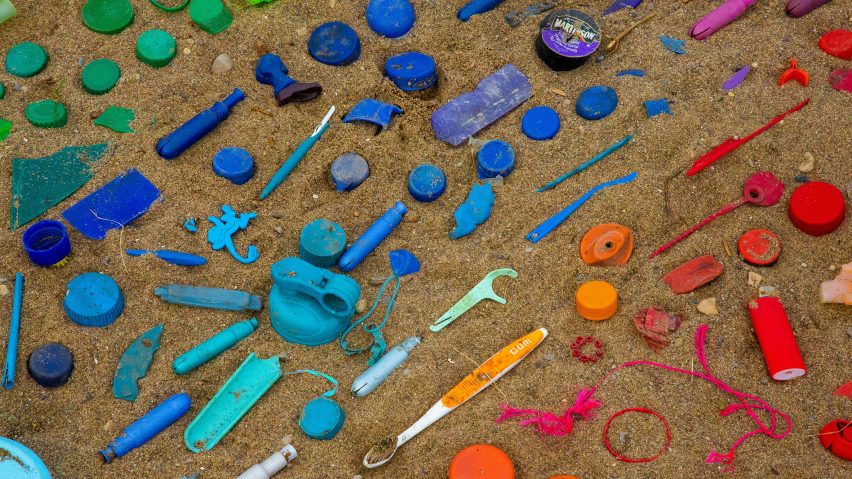View more

With Earth Day 2024 and an increasing number of environmental campaigners calling for an end to plastics, is time finally up for the 20th century's miracle material? Rima Sabina Aouf finds out if we can – and should – abolish plastic.
Earth Day 2024 has the theme of "Planet vs Plastics", campaigning for "the end" of the material starting with a 60 per cent reduction in plastic production by 2040 and ultimately building to a "plastic-free future".
"Better to incinerate plastic than recycle it"
The proposal is indicative of a broader escalation in the rhetoric around plastic. In the face of mounting evidence of dangers to the health of people and planet, and with lobbying efforts ramping up as United Nations member states work towards a draft of a global plastics treaty by the end of this year, more abolitionist voices are emerging, and even clashing with campaigners for circularity. Sian Sutherland, co-founder of advocacy group A Plastic Planet and alternative materials database PlasticFree, is among those who believe we should put an end to plastics – recycling and all.
"It is better to incinerate the plastic – safely – than it is to perpetuate its toxic existence by recycling it," Sutherland told Dezeen.
"We need to take plastic out of our system wherever possible. And if we burn it, despite the fact we are simply burning fossil fuels that were momentarily a bottle or plastic bag, we are taking it out of the system." She points out that at the current rate, global plastic production is forecast to increase threefold by 2060, and that the reality is that little of it is recycled – around 5 per cent in the US and less than 10 per cent in the UK. She also backs a recent report from the Center for Climate Integrity, which claimed that the plastics industry has spread disinformation about the efficacy of recycling as a sales tactic in the same way that oil companies have more famously obscured the climate impacts of fossil fuel.
"Recycling is the fig leaf of consumption," added Sutherland. "Makes us feel better but never actually fixes the problem. It simply prolongs it."
"We have mostly stopped material innovation"
Plastic-abolitionists like Sutherland argue that only binding phase-out commitments will channel investment into developing viable alternative materials.
"The answer to the 'is it possible' is this: for the last 50 years we have mostly stopped material innovation, because we had this miracle called plastic," said Sutherland. "It has become the default for almost everything – products, packaging, building materials, textiles." Labelling plastic a "toxic, indestructible material", she adds that a ban would create "a vacuum that innovation will quickly fill with better, safer, nature-compatible materials". "The odds are against all innovation whilst we still swallow the myth that recycling plastic is (a) happening and (b) the answer," said Sutherland.
Relevant technologies are beginning to emerge. Bio-based and biodegradable solutions made from crop waste, vegetables, mushroom mycelium, bacteria-forged cellulose and algae seek to emulate the light and pliable qualities that make plastic so integral to modern life.
Some designers are making do with what's already available. Richard Hutten, who at the 2019 Dezeen Day conference described plastic as "the cancer of our planet" and recycling as "bullshit", has managed to design almost entirely without plastic for years.
"Almost", because plastics – polymer-based materials usually derived from petroleum or natural gas – are so ubiquitous they're in products we don't even think about.
"The only plastic I've been using is paint on steel," Hutten told Dezeen. "It is almost impossible to avoid plastic completely."
In recent years he has made a barstool for British manufacturer Modus from cork and redesigned mid-century classics by Wim Rietveld with a mix of biodegradable latex and coconut hair in place of plastic foam.
"Plastic is not bad, it's just completely overused"
But for other environmental advocates, the idea of eliminating plastic misses the real problem: that most of the world today does not value the recovery of materials, of any type. We may be able to replace every variety of plastic in time, but as long as we live with overconsumption and disposability we will continue to deplete the planet's resources, they argue. "Plastic is not bad," Thomas Matthews partner and sustainability expert Sophie Thomas told Dezeen. "It's just completely overused, and we don't have the proper infrastructure to get it back in the system."
She points out that from its beginnings in the 1950s, plastic has been sold to consumers as a throw-away luxury that represented progress after the sacrifices of the second world war, when countries including the UK had strict salvage campaigns to collect household waste for reuse to make weaponry and counter slowdowns in imports.
"Every material had to be given back – bones, paper, string – everything had to go into the war effort," Thomas said. "So now this plastic comes along and it's like, don't worry about it. Use it once, throw it away."
"This is the kind of positive, clean, quick, cheap, colourful future that we wanted to bring in after the war." Instead of changing those patterns of use, Thomas sees brands and manufacturers rushing to replace plastics in the name of sustainability, sometimes with alternatives that have a worse environmental impact. One example is substituting plastic takeaway containers with paper, usually with a plastic lining that can't be separated, making both materials unrecyclable. By contrast, PET and especially HDPE – two commonly used packaging plastics – are the easiest to recycle, when not fused to other materials.
"Complexity is the worst thing for recycling," said Thomas. "Monomaterial is the way we should go – bio-monomaterials especially."
기사원문링크>
https://www.dezeen.com/2024/04/22/plastic-free-future-abolish-earth-day/